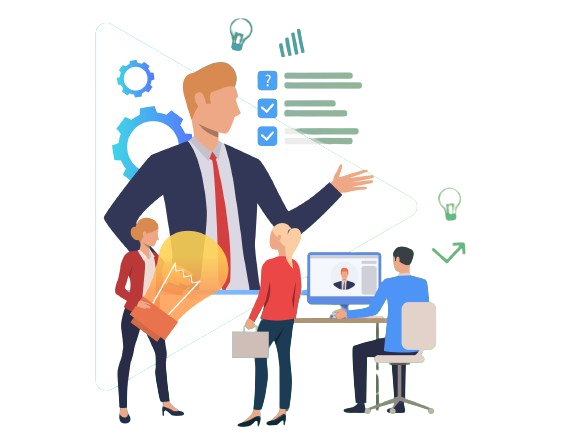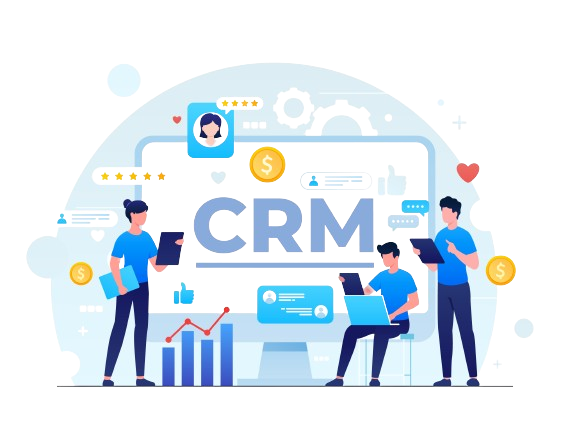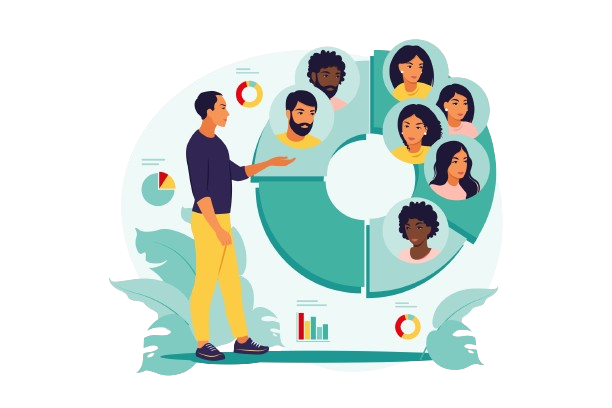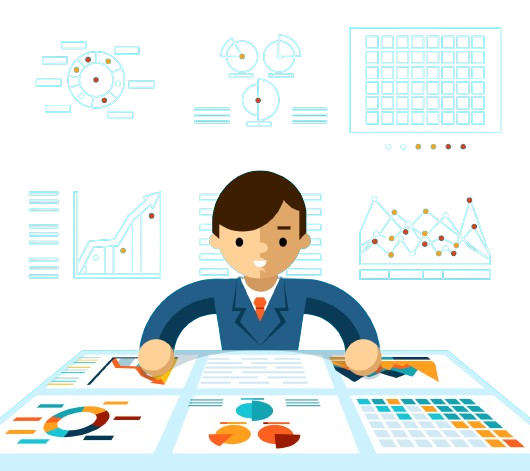
In the ever-evolving landscape of modern business, the importance of effective Client Relationship Management (CRM) cannot be overstated. CRM is crucial for client relationship management as it can centralize and organize your customer data while enabling you to understand, anticipate, and respond to your specific business needs. The best CRM software can also foster personalized interactions, streamline processes, enhance the satisfaction of your customers, and ultimately build lasting relationships and drive sustained success for your business.
These characteristics of CRM software make it necessary for you to leverage advanced tips and strategies within CRM and marketing platforms to continue to grapple with increasing competition and evolving consumer expectations for sustained success. But if you are worried that you do not have enough time to research and understand the tips needed to efficiently manage client relations with CRM software, fret not! This blog aims to provide an in-depth exploration of advanced techniques that can elevate your CRM game and help you maximize the potential of marketing platforms for unparalleled client engagement. So, let’s start with understanding what CRM software can do for your business.
Unveiling the Foundation: Client Relationship Management Essentials

Here’s what makes CRM software the best for managing client relationships:
- Data Accuracy: The Pillar of CRM Success
One of the fundamental advantages of CRM software lies in its ability to serve as a centralized repository for your customer data. By working as a repository, CRM software ensures that all your relevant information, starting from contact details to purchase history, is stored in a unified and easily accessible location. This eliminates the chances of scattered data sources while streamlining your operations, fostering a more efficient and organized approach to client relationship management. Besides, the data accuracy of CRM software can also help you with:
- Real-Time Updates and Elimination of Redundancy
CRM systems allow for real-time updates, which can ensure that all of your business’s important information is consistently accurate and that any changes made by one team member are reflected instantly for your entire team. As a result, it not only reduces the chances of outdated or conflicting data but eliminates redundancy in your data entry, which saves your time and minimizes errors.
- Reliable Decision-Making
Accurate data is the foundation of effective decision-making, and CRM software helps you with exactly that. CRM software can ensure the accuracy and integrity of client information, and eventually empower your teams to make informed decisions. Thus, whether it’s identifying trends, forecasting sales, or tailoring marketing strategies, by providing you with reliable data at your fingertips, CRM software enhances your overall efficacy of client relationship management.
2. Segmentation for Personalization

Alongside data accuracy, CRM software also helps with segmentation, let’s see how segmentation can help you with client relationship management:
- Beyond Basic Segmentation
While basic segmentation categorizes clients based on broad criteria, advanced CRM software takes this a step further. They can allow you to create highly specific segments based on intricate criteria such as client behavior, preferences, and engagement history. This nuanced approach can eventually ensure that communication is not only targeted but tailored to resonate with each of your segment’s unique characteristics as well.
- Hyper-Personalization Strategies
With segmentation CRM software also sets the stage for hyper-personalization, which is a key driver of successful client relationships. By understanding the nuances of each segment, you can craft personalized communication strategies. So, whether it’s tailoring product recommendations or sending targeted promotions, with hyper-personalization you can foster a sense of individualized attention and ultimately strengthen the bond between you and your clients.
- Increased Relevance and Engagement
Personalized communication increases relevance, which can help you capture the attention of your clients who are inundated with generic messages. As a result, by making your customers feel valued, you can engage them positively. This heightened engagement can not only contribute to immediate conversions but lay the groundwork for their long-term loyalty toward your business.
Now that you have realized the efficiencies of CRM software, let’s take a look at its extensive features that can help you enhance your client relationships seamlessly.
Why Do You Need a Client Relationship Management and Marketing Platform for Your Business?

Here’s why you need a CRM and marketing platform for your business:
1. Harnessing Automation for Efficiency
One of the biggest benefits of using CRM software is that it automates workflow and helps its users enjoy swift workflow management. So, let’s take a look at how the automation feature of CRM software can enhance your business:
- Enhanced Efficiency and Time Savings
Automation within CRM software can allow you to execute routine and time-consuming tasks without manual intervention. It can automate mundane processes such as data entry, lead scoring, and follow-up communications and free up valuable time for your sales and support teams. This feature of CRM software can not only accelerate your workflow but ensure that your human resources are allocated to more strategic and client-focused activities as well.
- Personalized Customer Experiences
By harnessing automation functions, you can deliver personalized customer experiences at scale. The best CRM software can track your customer interactions, preferences, and behaviors while enabling personalized communication. Thus, by allowing you to deliver targeted marketing campaigns to tailored product recommendations, the automation feature of CRM software can ensure that your clients feel understood and valued, which in return would foster stronger and more meaningful relationships.
- Timely and Consistent Communication
The automated communication workflows fostered by CRM software can also guarantee that your business interactions are timely and consistent interactions with clients. So, whether it’s sending follow-up emails, appointment reminders, or feedback requests, with automation you can be sure that your teams overlook no important touchpoints. This consistency in return can build trust and reliability, which are essential elements for maintaining positive client relations over time.
- Data Accuracy and Insights
With automation CRM software can minimize the risk of human error in data entry and management in your workflow, as by automating data collection and updates, CRM software maintains accurate and up-to-date client information. Furthermore, automation can also allow seamless integration of data from various touchpoints, which in return would provide you with comprehensive insights into client behavior and preferences. These insights can prove to be invaluable for your business, especially when making informed decisions and tailoring your services to meet client expectations.
- Workflow Streamlining and Collaboration
Automation functions of CRM software can also streamline your workflows by automating the handoff of information between your different departments. This can ensure that your sales, marketing, and support teams are working with the most current and relevant data, which in return can foster collaboration and alignment across the organization. Besides, well-integrated CRM software with automation capabilities can break down silos in your organization and promote a holistic approach to client relations.
2. Leveraging Analytics for Informed Decision-Making

Modern CRM software can enable you to derive meaningful insights from client data to facilitate not only informed decision-making but also manage your client relations strategically. Thus, let’s explore the multifaceted benefits that the analytics function of CRM software provides to its users:
- Data-Driven Decision-Making
The analytics functions in CRM software can empower you to make decisions based on concrete data rather than intuition. By analyzing client interactions, purchasing patterns, and engagement metrics provided by the CRM software you can identify trends and patterns for informed decision-making. With this data-driven approach, you can eventually minimize the risks associated with gut-feel decisions and enhance the overall effectiveness of your client relations strategies.
- Client Segmentation and Targeting
Analytics in CRM software can enable you to segment your client base effectively, as it seamlessly categorizes clients based on demographics, behavior, and preferences. Based on this segmentation you can tailor your communication and marketing strategies to specific groups. As a result of this targeted approach, you can send personalized content to your clients and enjoy higher engagement and satisfaction.
- Predictive Analytics for Anticipating Client Needs
The analytics of CRM software go beyond historical data, it can incorporate predictive analytics to anticipate the future needs of your clients, and by analyzing past interactions and behaviors, you can predict trends and proactively address client requirements. Eventually, with this foresight you can develop proactive client engagement strategies and foster a sense of responsiveness and adaptability.
- Performance Measurement and KPI Tracking
Analytics functions in CRM software also provide a comprehensive view of key performance indicators (KPIs). You can track metrics such as conversion rates, customer acquisition costs, and customer lifetime value, for continuous evaluation of your client relations strategies. This in return can enable agile adjustments and optimize your workflow performance to help you achieve your business goals.
- Improved Customer Satisfaction and Retention
Understanding client feedback and sentiment is crucial for maintaining high levels of customer satisfaction, and CRM software can help you achieve just that. By analyzing customer interactions, feedback, and support tickets, the best CRM software can gauge the sentiment of your clients and identify areas for improvement. This information in return can prove to be invaluable for you, especially in refining your products, services, and communication strategies, which can ultimately enhance customer satisfaction and foster client loyalty.
- Strategic Planning and Resource Allocation
Ultimately, with the appropriate CRM software you can leverage its analytics to strategically plan and allocate your resources as the analytics feature of CRM software can provide you with a holistic view of client interactions and business performance. With this insight, you can facilitate the allocation of your resources and ensure that your investments in client relations efforts are directed towards initiatives with the highest potential for success.
3. Enhancing Communication Strategies
Communication lies at the heart of successful client relations, and Customer Relationship Management (CRM) software can serve as a cornerstone for managing and optimizing these interactions. By enhancing communication strategies within CRM software, you can cultivate stronger, more meaningful relationships with your clients. Let’s explore how:
- Personalized Communication
CRM software can allow you to enhance your communication strategies, with which you can deliver personalized messages tailored to your individual client’s needs and preferences. Besides, by leveraging data on client interactions, purchasing history, and preferences, you can craft targeted communications that resonate with your clients on a personal level. With this personalization, you can foster a sense of connection and demonstrate a genuine understanding of your client’s unique requirements.
- Multi-Channel Engagement
A robust CRM software can extend your communication strategy across multiple channels, and allow you to meet your clients where they are most comfortable. So, whether through email, social media, phone calls, or messaging apps, you can engage your clients through their preferred channels. Plus, this multi-channel approach can ensure that your communication is seamless and consistent, to enhance the overall experience of your clients.
- Timely and Automated Outreach
CRM software can also enhance the timing and consistency of your communication strategy. By automating communication workflows, such as follow-up emails, appointment reminders, and milestone acknowledgments, CRM software can ensure that your clients receive timely information without manual intervention. This can not only save you time but ensures that critical touchpoints in every client journey are consistently addressed as well.
- Feedback Collection and Response
CRM software can also facilitate the collection of client feedback through surveys, reviews, and other channels. You can use this feedback to gauge client satisfaction, identify areas for improvement, and make data-driven decisions. Moreover, you can send prompt responses to client feedback with the help of CRM software, and demonstrate a commitment to continuous improvement and a proactive approach to addressing client concerns.
- Customer Education and Value-Added Content
Your communication strategies can be enhanced with CRM software as it allows you to include educational content that adds value to your clients. Whether through newsletters, webinars, or targeted content campaigns, you can position your business as a trusted advisor by providing valuable information that aligns with the interests and needs of your clients. This can not only strengthen your client relationships but position your business as an industry authority as well.
4. Nurturing Client Loyalty Through Experiential Strategies

Client loyalty is a cornerstone of business success, and CRM software serves as an instrumental tool in cultivating enduring relationships. Through a focus on experiential strategies, CRM software can empower you to create meaningful, personalized, and memorable interactions that foster client loyalty. Let’s take a look at how CRM software can help you nurture client loyalty through experiential strategies:
- Data-Driven Personalization
One of the primary ways CRM software contributes to client loyalty is through data-driven personalization. By aggregating and analyzing client data, CRM software can provide you with insights into individual preferences, behaviors, and purchase histories. Armed with this knowledge, you can tailor your interactions and offerings, to deliver a personalized experience that resonates with each client on a deeper level. This personalization can enhance the perceived value of your services and strengthen the emotional connection between your client and your brand.
- Proactive Relationship Management
The best CRM software can facilitate your proactive relationship management by offering you and your team real-time visibility into client activities. You can track client interactions, monitor engagement, and anticipate needs, and this proactive approach can enable timely and relevant interventions. With these timely and relevant interventions, you can ultimately demonstrate a commitment to your client’s success. Besides, by addressing concerns before they escalate and consistently exceeding the expectations of your clients, CRM software can enable you to provide a positive client experience and lay the foundation for lasting loyalty.
- Timely and Targeted Communication
Effective communication is paramount in client loyalty and with appropriate CRM software you can do just that. The best CRM software can streamline your communication processes by automating your workflows and ensuring timely, targeted messages. Thus, whether it’s sending personalized offers, updates, or appreciation messages, CRM software can enable you to stay connected with your clients at crucial touchpoints, and with this timely and relevant communication, you can build trust and show your clients that their needs are a priority.
- Feedback Utilization for Continuous Improvement
CRM software can facilitate the collection and analysis of client feedback, and by enabling you to actively seek and utilize feedback it can help you not only demonstrate a commitment to improvement but allow you to understand client expectations better as well. Besides, by integrating feedback into your processes and service enhancements the best CRM software can empower you to show your clients that their opinions matter, create a sense of partnership, and invest in their satisfaction at the same time.
- Seamless Collaboration Across Teams
CRM software can also promote seamless collaboration across your sales, marketing, and support teams, by providing a unified view of your client interactions. This can result in enhancing coordination and consistency within your teams, which can enhance the overall client experience, and reinforce the reliability of your brand and that of your professionalism. Besides, this cohesive approach across your teams can contribute to a holistic and positive client perception.
Conclusion
As the business landscape continues to evolve, mastering the art of client relationship management is non-negotiable. By implementing advanced tips within your CRM software and marketing platforms, you can not only meet but exceed client expectations. So, use this comprehensive guide as a roadmap to navigate the complexities of client relationship management, and gain insights and strategies to foster enduring success in a competitive marketplace.